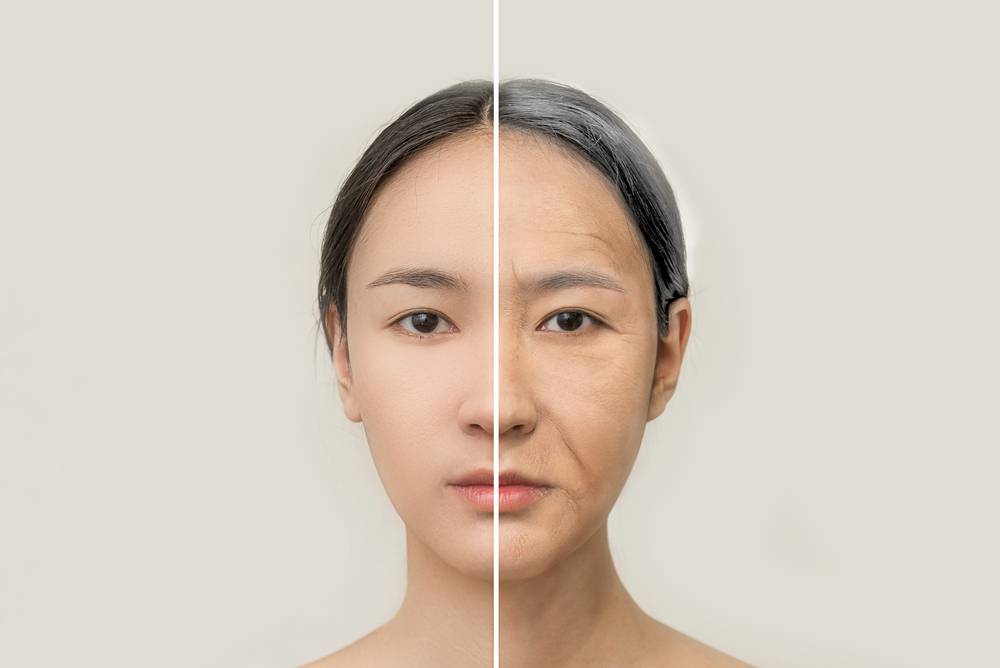Ageing in Waves: What Happens at 44 and 60?
Ever feel like you’ve aged overnight? New research suggests that ageing doesn’t happen gradually but in two dramatic waves—first at 44, and again at 60.
These phases bring dramatic changes to your body, affecting everything from your skin to your metabolism.
Prof Michael Snyder, who led the study, explains to The Guardian that ageing doesn’t follow a slow, steady path, but instead occurs in dramatic shifts.
“We’re not just changing gradually over time,” he says, emphasising how these abrupt bursts affect the body.
His research, which tracked thousands of molecules, pinpointed sharp changes around ages 44 and 60. These phases could explain why midlife often feels like a sudden plunge into ageing, with more wrinkles, fatigue, and joint stiffness becoming noticeable seemingly overnight.
The Science Behind the Ageing Bursts
A study published in Nature Aging followed 108 participants aged 25 to 75 over several years. By examining blood and tissue samples, researchers discovered that humans don’t age gradually but in waves.
What exactly changes? The first burst, which hits in the mid-40s, impacts molecules linked to cardiovascular health, as well as alcohol and lipid metabolism. By the time the second burst arrives in the early 60s, molecules involved in immune regulation and kidney function start to shift.
According to Prof Snyder, “It turns out the mid-40s is a time of dramatic change, as is the early 60s – and that’s true no matter what class of molecules you look at.”
Read also: 5 Must-Have Supplements for a Stronger Heart
Why 44 and 60?
The first burst of ageing around age 44 surprised the researchers, who initially thought it might be driven by perimenopausal changes in women. However, the data showed that men experienced similar shifts at the same age.
According to Dr Xiaotao Shen, a co-author of the study now based at Nanyang Technological University, “There are likely other, more significant factors influencing these changes in both men and women.” This points to deeper biological processes that trigger accelerated ageing for both genders.
The study highlights that cardiovascular risk increases steeply after 40, with about 40% of individuals aged 40–59 showing signs of heart disease. Changes in lipid metabolism also align with these increased risks, disrupting the body’s ability to manage cholesterol and fats.
The second wave, occurring around age 60, affects key functions like immune response, carbohydrate metabolism, and kidney health. During this phase, the immune system’s ability to regulate inflammation weakens, leading to greater susceptibility to infections. In particular, the study found that molecular markers linked to glucose regulation began to deteriorate, increasing the likelihood of type 2 diabetes.
What This Means for Health and Lifestyle
Understanding these ageing waves gives us a chance to manage our health more effectively. The sudden changes at 44 and 60 suggest that making targeted lifestyle changes during these phases—like improving diet, increasing exercise, and monitoring health—can have a big impact on how we age.
For example, the first wave of ageing affects cardiovascular health and metabolism, making it crucial to adopt heart-healthy habits by the mid-40s. This could include increasing physical activity, improving diet, and reducing alcohol consumption, which may help to counter the effects of the body’s changing ability to metabolise lipids and alcohol.
Since cardiovascular risks increase dramatically during this time, focusing on preventing heart disease through diet, exercise, and regular health check-ups could be particularly important.

The second wave, around age 60, marks changes in immune regulation and kidney function. At this stage, adopting habits that support a healthy immune system, such as a nutrient-rich diet, regular moderate exercise, and adequate sleep, becomes critical. Managing blood sugar through diet and exercise could also help combat the risk of diabetes, which increases as carbohydrate metabolism declines.
As Prof Snyder explains, understanding these two key phases of accelerated ageing offers an opportunity to intervene earlier. “I’m a big believer that we should try to adjust our lifestyles while we’re still healthy.”
The Future of Personalised Ageing Interventions
The discovery that humans age in two distinct bursts opens the door to more personalised healthcare approaches. By identifying the specific biological changes that occur during these phases, researchers hope to develop targeted interventions that could help slow down the ageing process or reduce the risk of age-related diseases.
For instance, knowing that cardiovascular risks spike in the mid-40s could lead to earlier screening and preventive measures, such as cholesterol-lowering therapies or personalised fitness plans. Similarly, interventions to support immune health and kidney function could be introduced around age 60, when these systems begin to decline.
The findings also raise the potential for new treatments aimed at addressing the molecular shifts that occur during these key transitions.
By focusing on the underlying biological changes, rather than simply treating symptoms, doctors may be able to help people maintain better health for longer periods.

